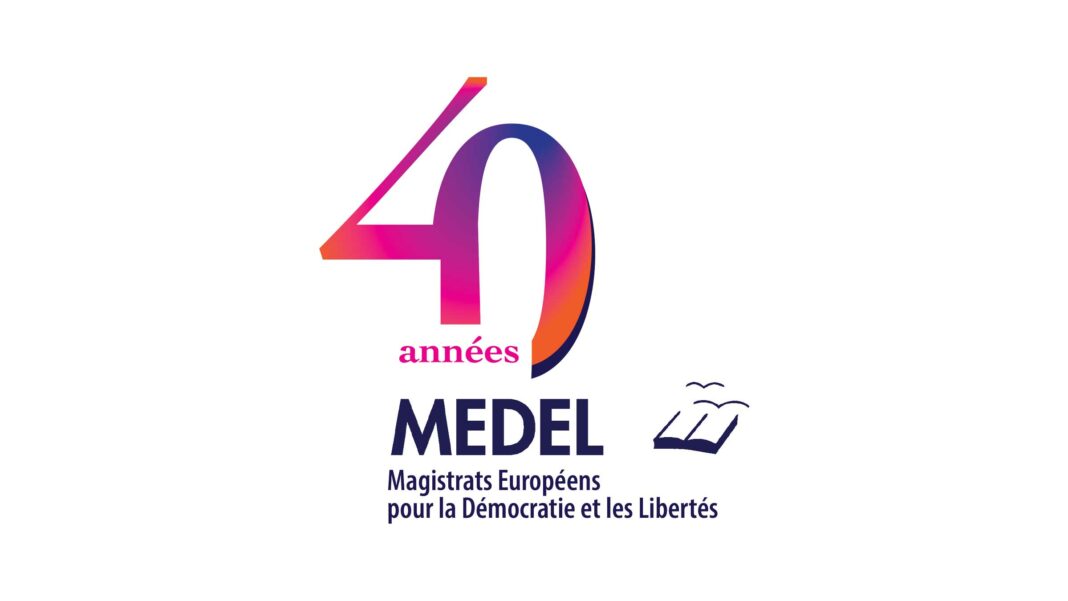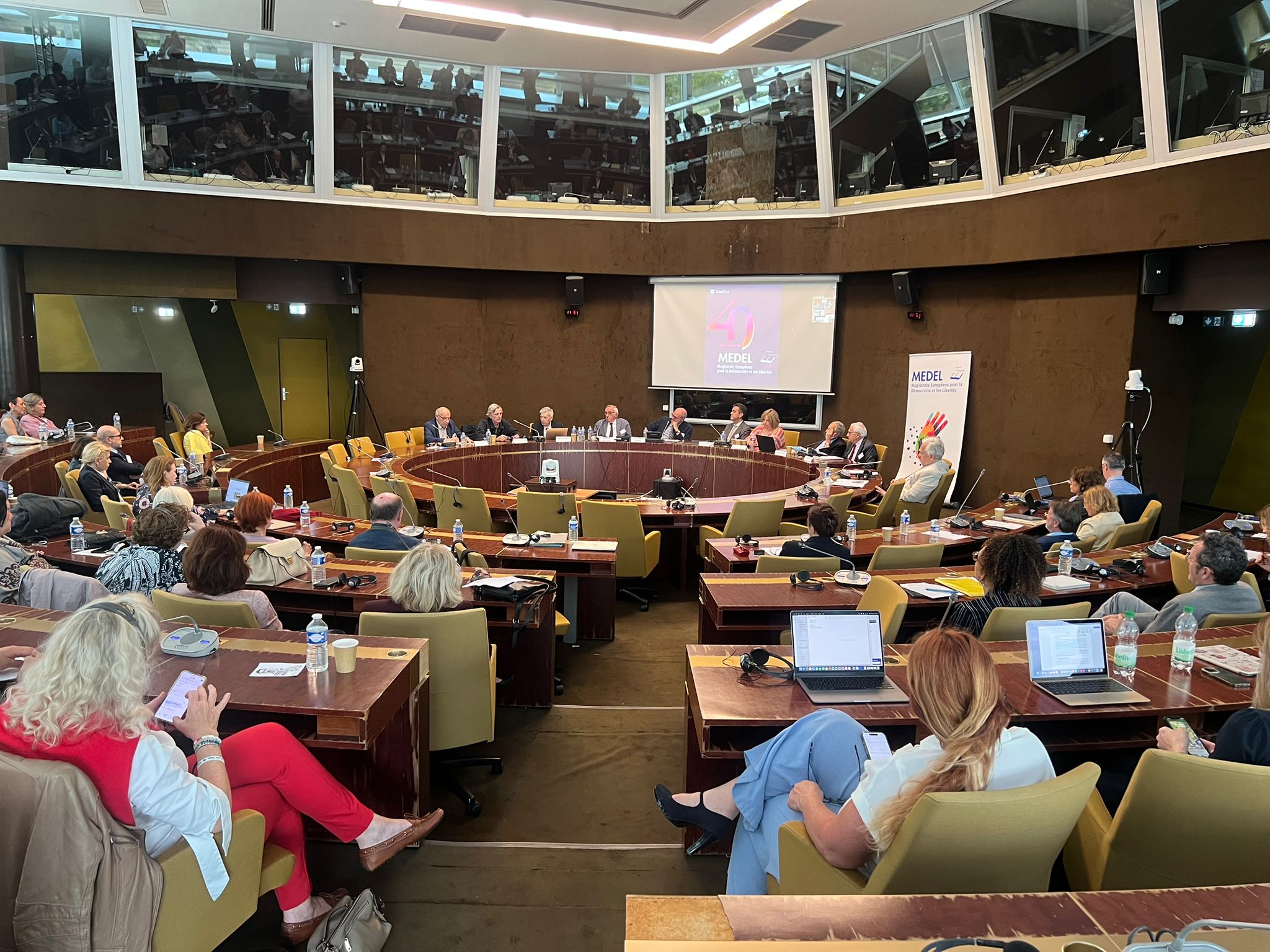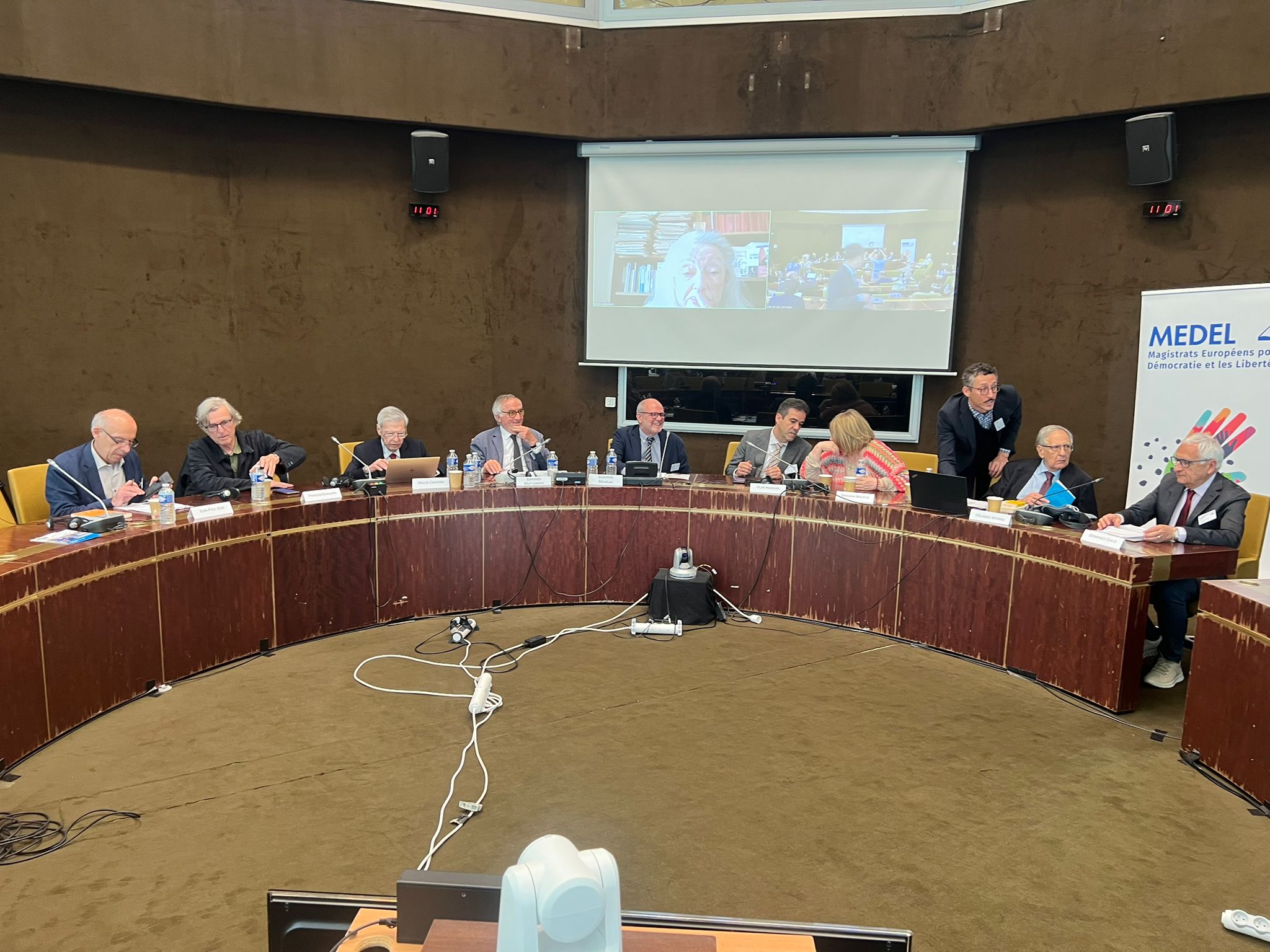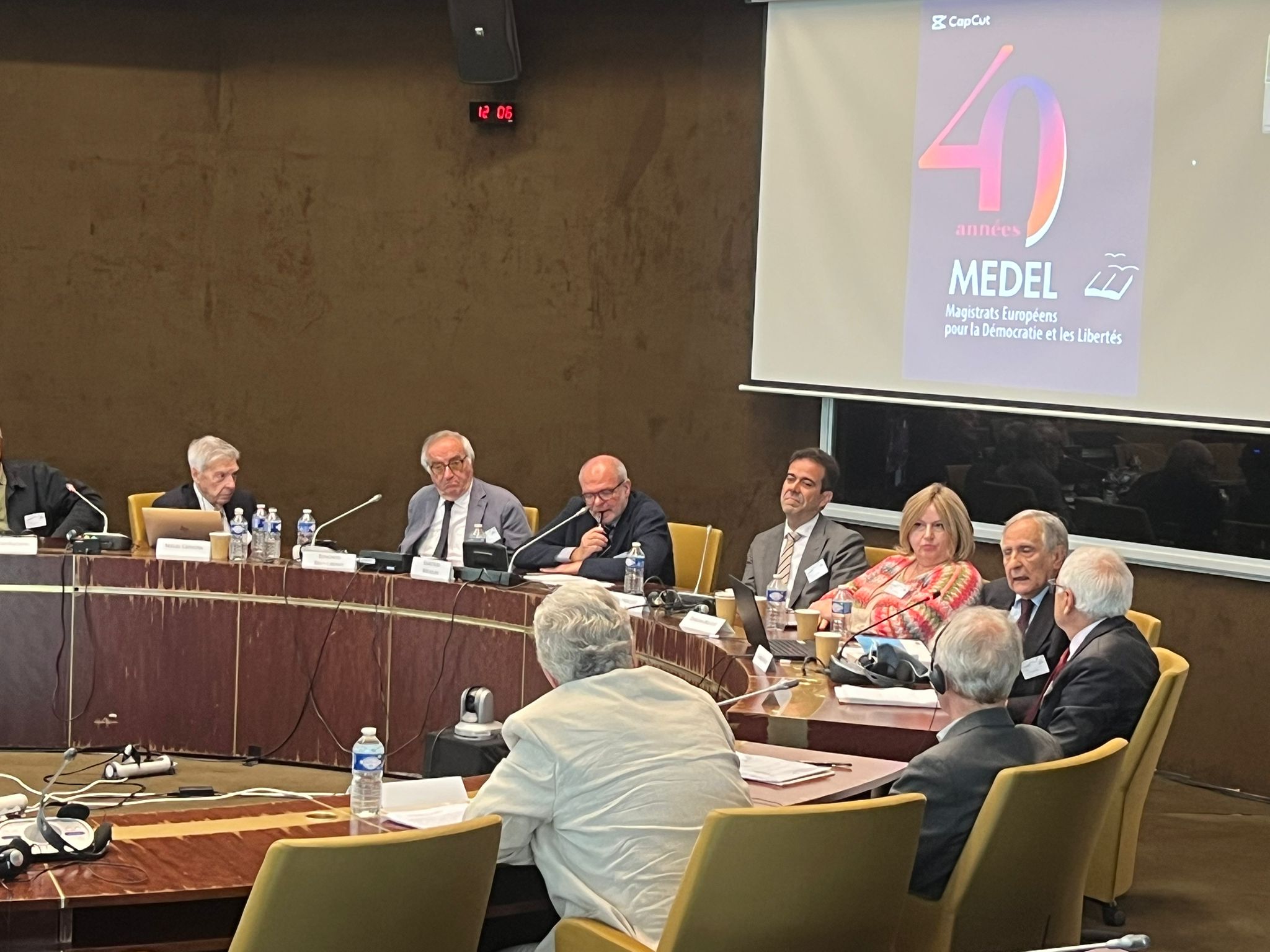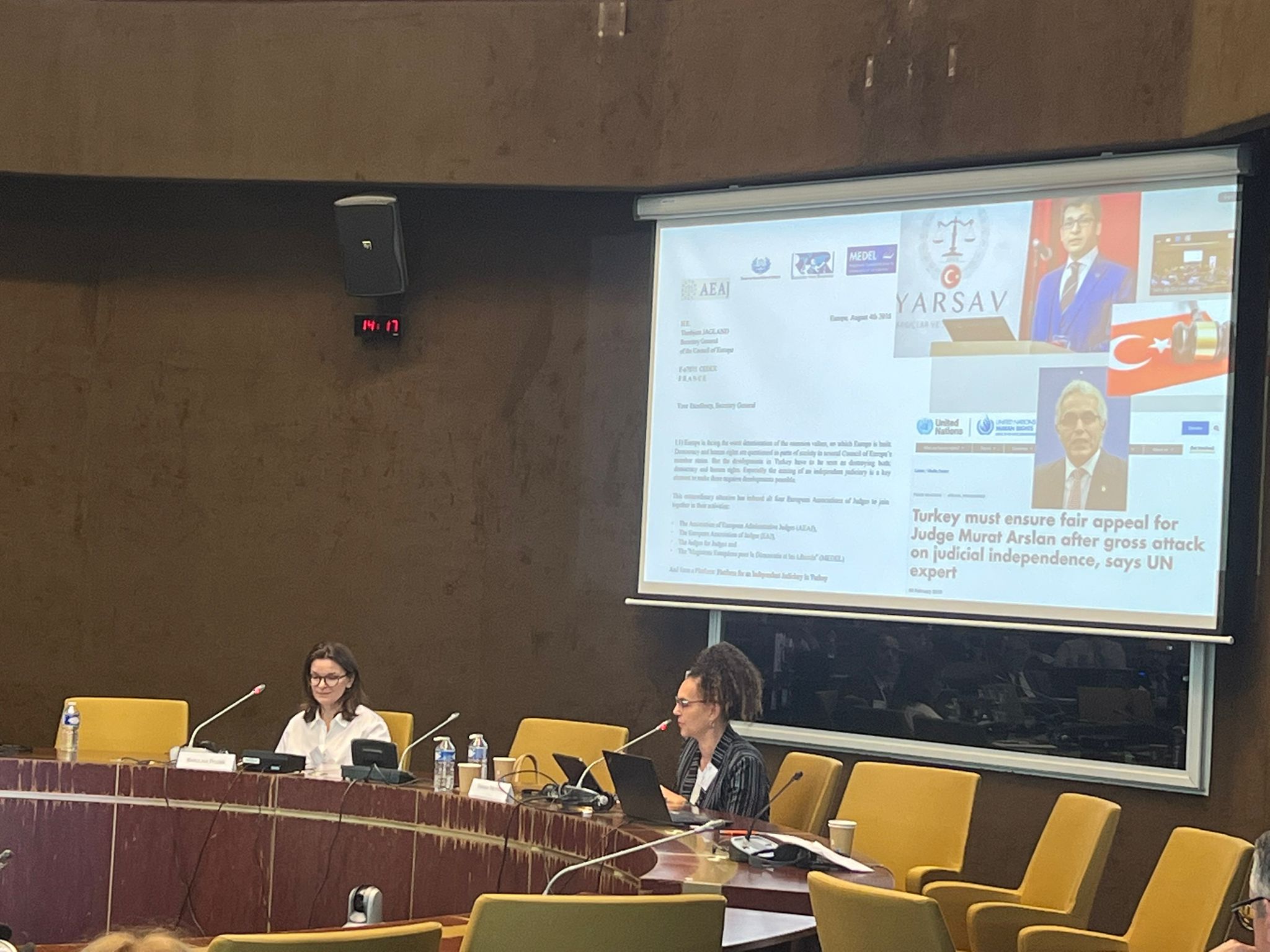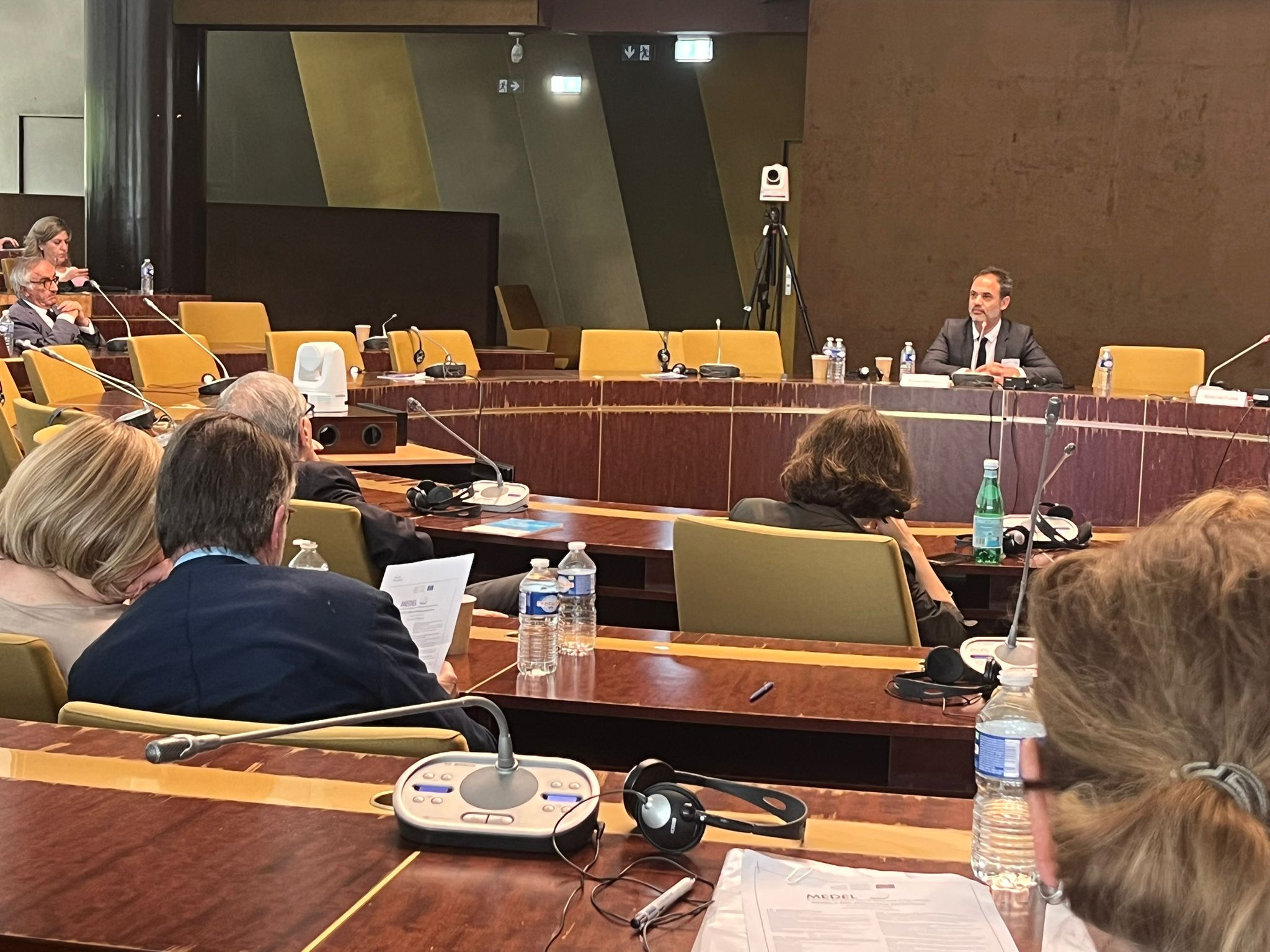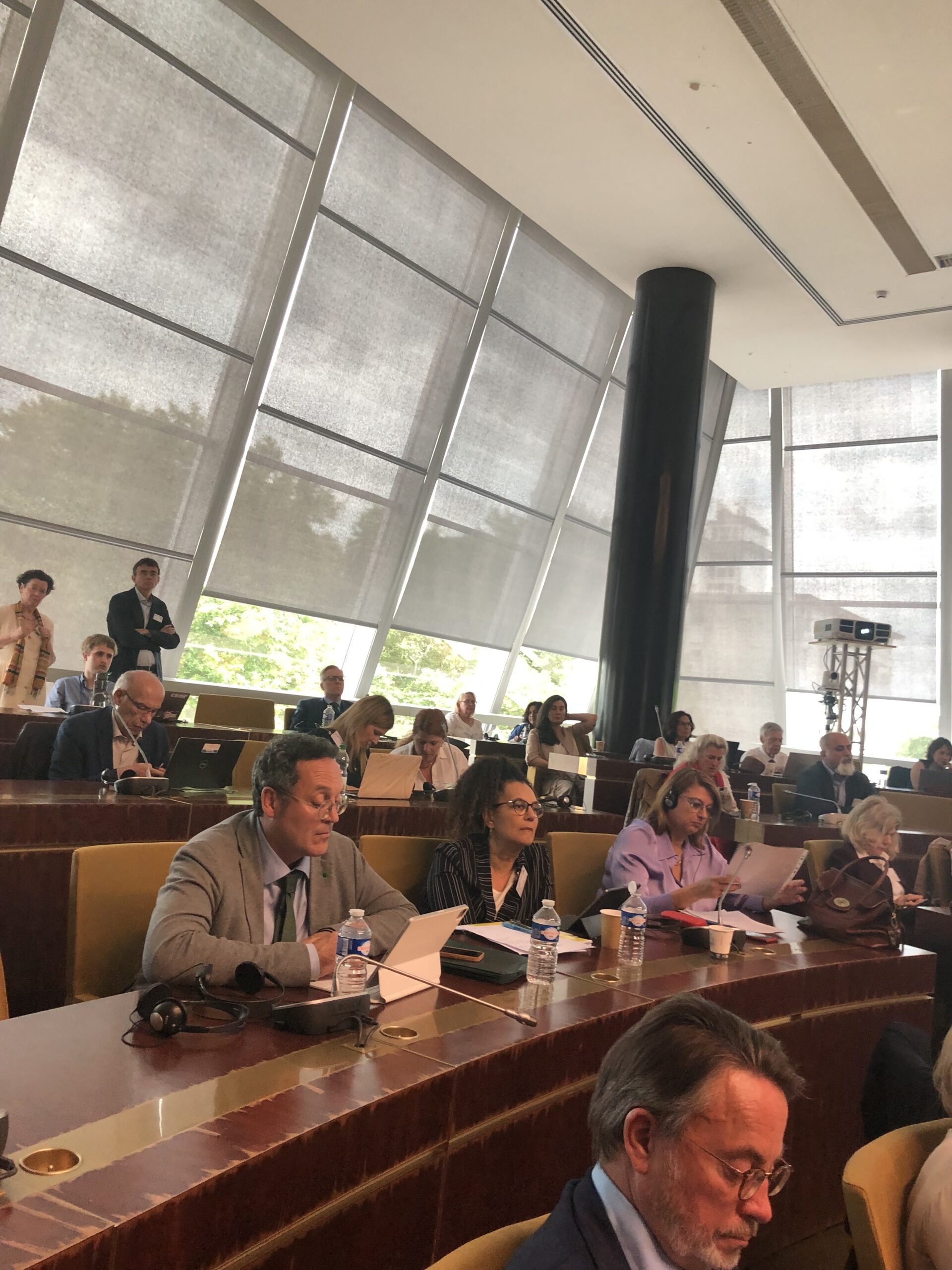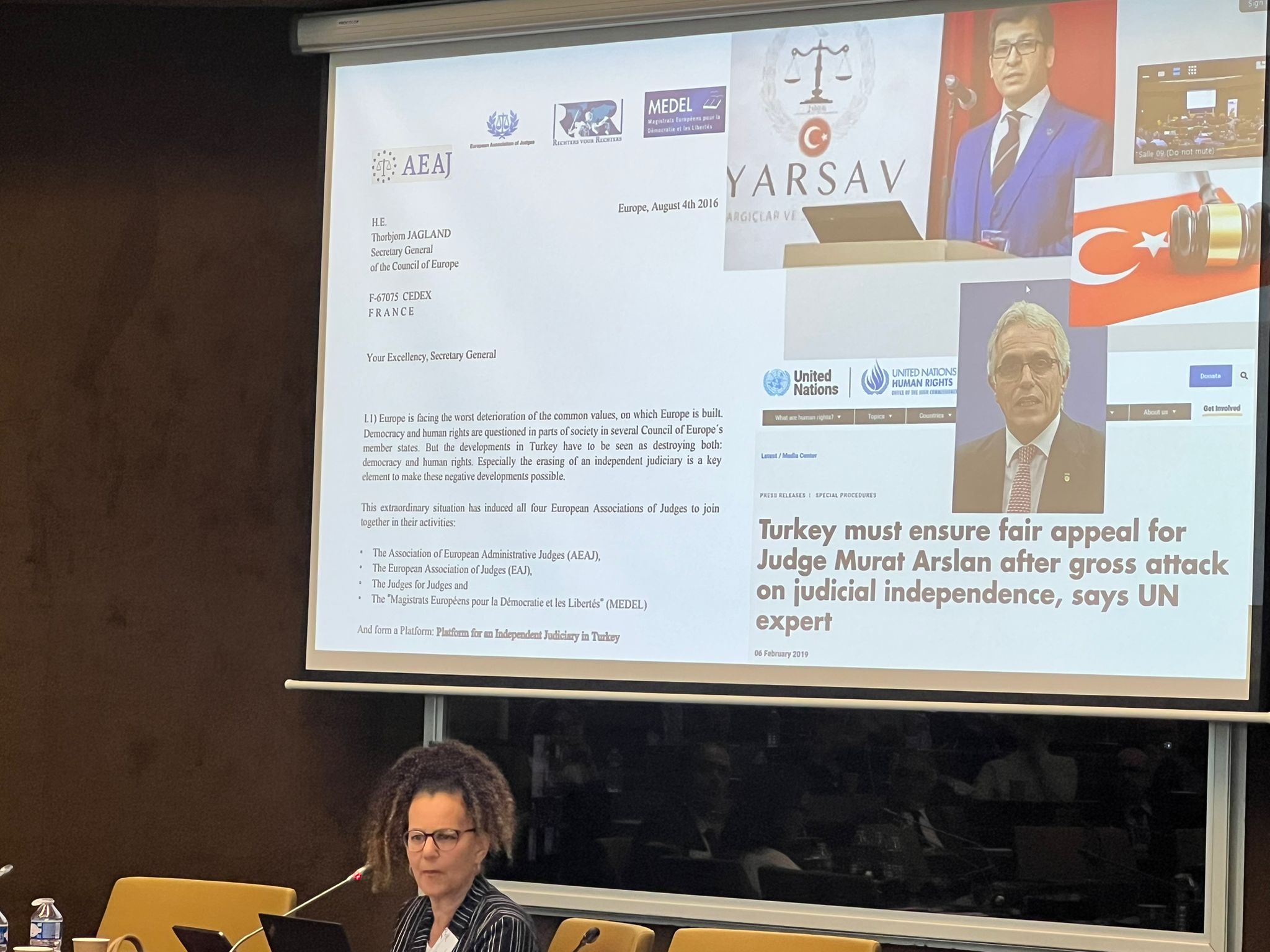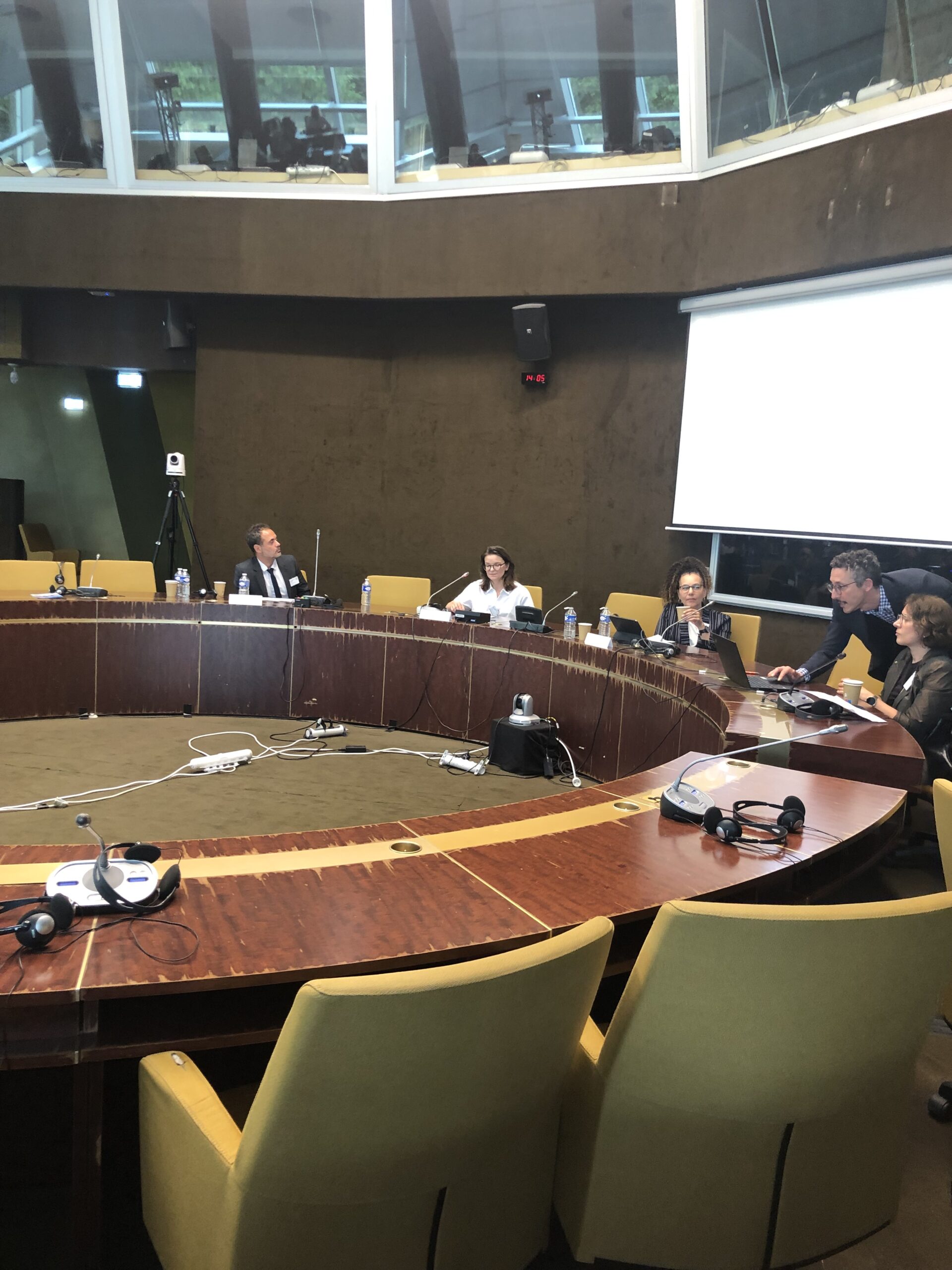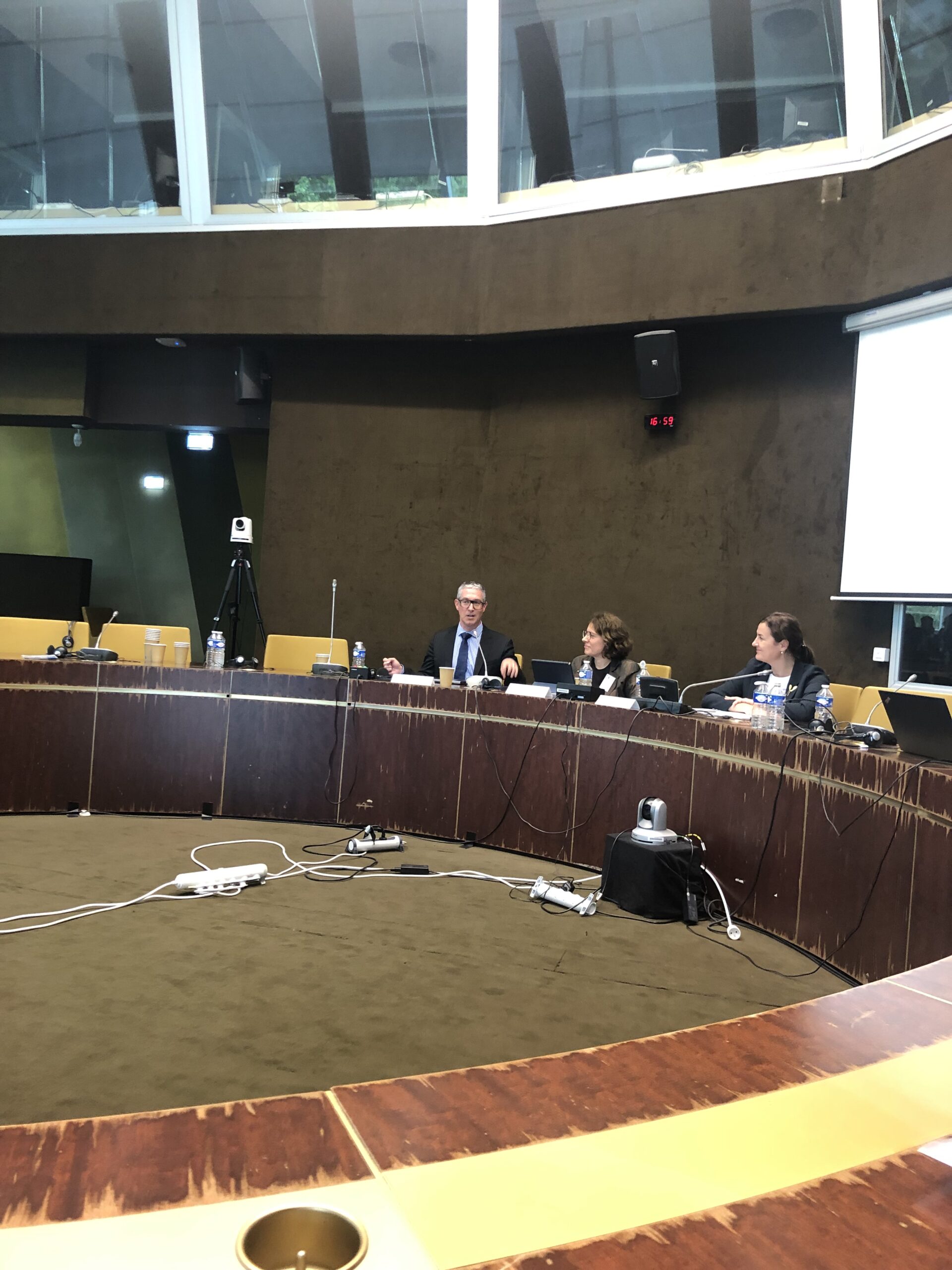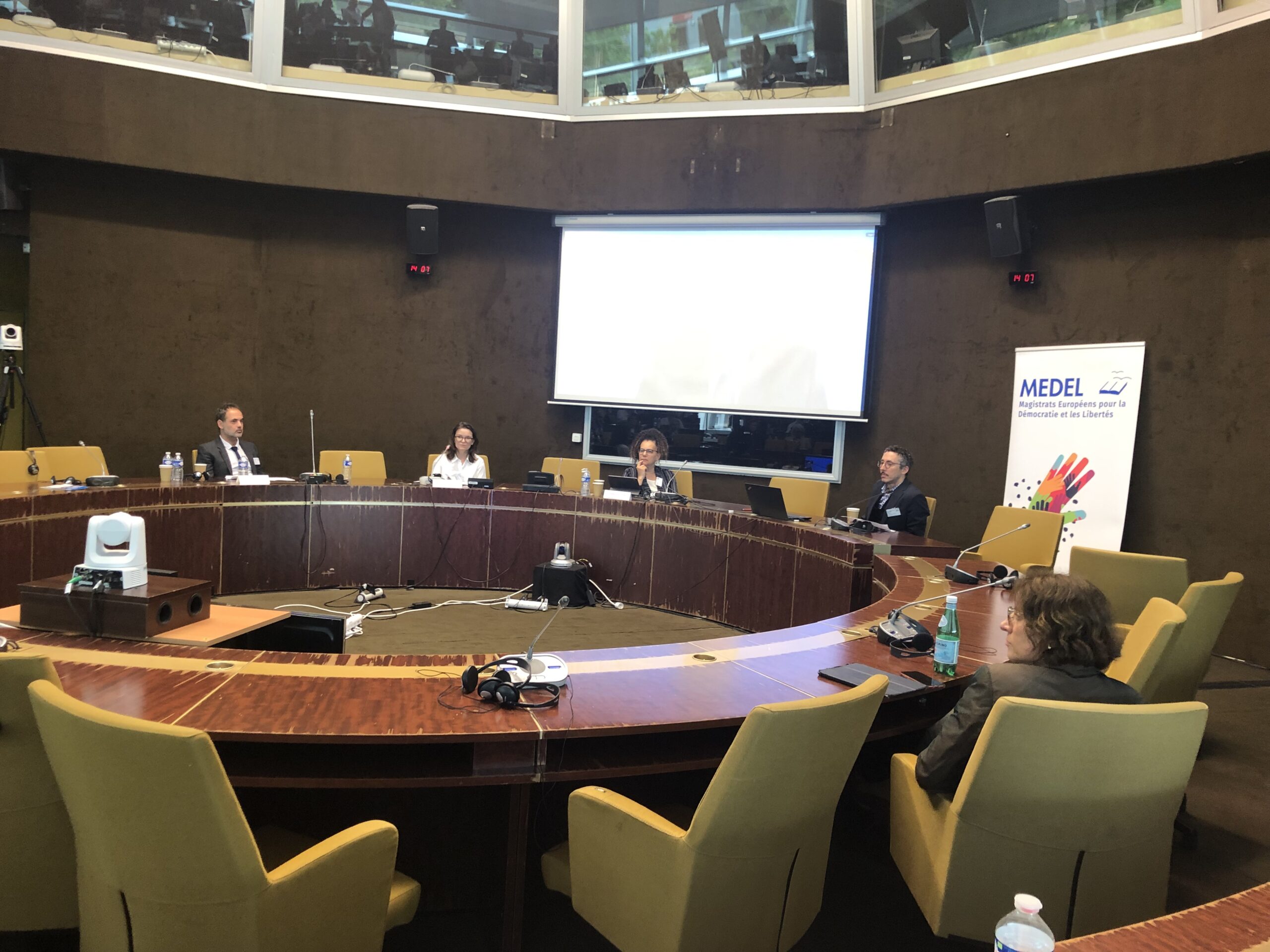Speech by António Cluny
“LONG LIVE PEACE”
Justice is often used as a tool for conflict rather than – as it should be – for creating peace and harmony between citizens, peoples, and countries.
António CLUNY, former President of Medel
1. Dear friends,
It’s been a long time since I was at MEDEL meetings with you.
Even though I would have liked to, I am unfortunately unable to join you today due to a number of circumstances.
However – I assure you – I have always shared your concerns about the role reserved for the judiciary in our Europe, that is becoming more uncertain and problematic by the day.
I’m of the opinion that, at present times, the judiciary has been called upon to play a subservient role to the more global political plans and strategies, on both national and European levels, to a greater extent than before.
Those plans that national governments and European institutions wish to improve, often disregard the fundamental rights established in national constitutions and international and European charters, particularly those concerning procedural guarantees.
2. Consequently, when next discussing the Justice role within MEDEL, we might want to turn our focus to certain legal reforms relating to migration and refugees.
This area, among others, reveals some of the disregard present when dealing with fundamental rights and guarantees.
By this, I’m referring to the use of Justice – through summary decisions – not as a safeguard for the human rights and dignities of migrants and refugees, but as a simple apparatus and a long arm of the executive power.
Here, it is important to underline that some national legislations consider the mere fact of someone entering their territory without permission to be a crime and the migrant or the refugee to be a criminal.
This means that many victims of human trafficking networks are treated, not as victims they really are, but as potential criminals.
Instead of receiving protection from the authorities against their aggressors, they are, quite often, subject to administrative expulsion orders. These are subsequently ratified by Courts that cannot do anything other than verify the formal legality of such procedures.
However, Courts should not act as official notary: that is not their mission.
The more relevant mission of our Courts should be the protection and assertion of the fundamental rights and guarantees of citizens: national and foreign citizens.
They exist to make fundamental rights operative.
Thus, it is important to discuss this matter: the reduction of fundamental rights and procedural guarantees as a result of the prioritisation of security and what could be the role-played by Courts to control and, when necessary, moderate this tendency.
3. Today, however, political power continues to seriously distort the role of the Courts – or at least of certain bodies that claim to act as such – and this should not escape our attention.
I’m talking about the so-called special courts installed to judge war crimes and crimes against humanity.
It is important to admit that, in the context of war politics, Justice is often used as a tool for conflict rather than – as it should be – for creating peace and harmony between citizens, peoples, and countries.
Faced with political pressure and propaganda campaigns supported by increasingly biased media, the national and European judicial institutions, have, as of yet, not found a coherent response to uphold the democratic and social principles and values: for instance, the right to have a predetermined Court to judge crimes that are supposedly committed.
(Article 47 of EU CFR – “Everyone whose rights and freedoms guaranteed by the law of the Union are violated has the right to an effective remedy before a tribunal in compliance with the conditions laid down in this Article.
Everyone is entitled to a fair and public hearing within a reasonable time by an independent and impartial tribunal previously established by law.)
This leads to the current public perception of “special war courts” as a tool of revenge employed by the victor against the vanquished.
On the contrary, the role of Justice is – should be – focused on litigant reconciliation, cultivating a state of harmony: in short on making peace.
Consequently, it is of the utmost importance that Europe does not replicate the simulated trials used before and during the Cold War, on both sides of the Berlin Wall, to create an illusion of respect for the rule of law.
The reference to the two sides of the Berlin wall is totally relevant.
Sometimes we forget that at that time, in the south and western part of Europe, fascist dictatorships governments still existed in Spain, Greece and Portugal.
The latter one – being a fascist regime – was even founder of NATO, as well as EFTA.
4. In addition, we cannot forget that on certain occasions, different autocracies, which have historically demonstrated an absence of respect for the rule of law, have opted to establish special courts that are designed to impose significant criminal penalties to those deemed to be opponents.
The establishment of special courts by one of the parties involved in a war, typically the victor, suggests a break of the court independence and neutrality as well as the abandonment of the equality of arms principle.
Such so-called courts used to be established with the unique purpose of imposing predetermined penalties on those who were defeated.
That’s why, ICC was created; to avoid this kind of original sin, including the real and perceived lack of independence and impartiality of such “special courts”.
Looking back, it would be preferable if national and European courts and magistrates did not assume any role within those political institutions, which were and are still called “courts”.
By taking part in this mystification, some magistrates – originally from the ordinary judiciary – have seriously undermined the credibility of the regular European judicial system.
Analyzing the role that judges and prosecutors who worked at those courts have had might be important, if only to better understand what kind of responses Justice – the regular one – shall give in the future to the political power in similar circumstances.
5. MEDEL was not established, as some might think, only to uphold the independence statutes of European judges and prosecutors: it was created to uphold an independent judiciary / Justice.
The call for independent statutes for judges and prosecutors was nothing more than an implicit response to the broader critical assessment of the political role of the judiciary.
Without independent judges and prosecutors, there can be no independent Justice.
It is for this reason that MEDEL was established: to create a free space where judges and prosecutors could develop an unrestricted critical reflection and a clear conversation about justice: a conversation able to make judges and prosecutors aware of their own political responsibility.
In short, MEDEL was not made to criticize those who have tried to influence the judiciary from the outside – something which has permeated throughout history. Instead, MEDEL was born with the ambition of developing an internal evaluation of the judiciary practices with regard to the role that judges and prosecutors play in it.
6. Today, as never before, it is important to maintain this detached, critical and self-critical approach to the charming oratories that only serve to manipulate the judiciary towards alien political objectives, or towards the violation of fundamental human rights.
Never, since the fall of all the fascist dictatorships that led Europe into a world war at the end of the 1930s and the middle of the 1940s, has there been such an atmosphere of manipulation of truth and coercion of freedoms around Europe: freedom of information, freedom of opinion, freedom of expression.
That is why, now more than ever, it’s necessary to maintain a space within MEDEL for free discussion, evaluation and even – when justified – for developing a strong opposition to the use of Justice in the name of escalating wars and hatred.
MEDEL must therefore continue to fight, as it has always done, for dialogue and peace. But also against the dangerous, irresponsible and increasingly powerful international “war party”.
“War party” and regular courts cannot collaborate, because they have always stood – and must continue to stand – on opposing sides.
7. As always, the explosive contradictions developed by the (now) common, global, political and economic system express and generate, once again, the old demons of nationalism, racism and hatred of others: hatred of refugees, immigrants, members of national minorities, even of some nations or political opponents. In short, hatred of anyone who appears to be different.
Meanwhile, no real effort has been made to change the economic, political and social injustices that remain the real factors in the development of such criminal phenomena.
A renewed critical look at the role of the law and the current role of the courts seems to be, now more than ever, a duty for European judges and prosecutors who are and have been fighting for a better democracy and an independent judiciary – Justice.
Reading the speeches made and collected by MEDEL at the beginning of its existence can perhaps be inspiring today.
It was not by chance that MEDEL, our organization; opted for its name: Magistrats Européens pour la Démocratie et les Libertés.
8. Thank you for keeping a watchful and critical eye at Justice. For not allowing yourselves to be led by the Hamelin flute that some irresponsible politicians play every day, trying to convincing you that your role is to use the law to fight all those who are labeled an enemy.
This is not Court’s role: the role of Justice is to use the law to promote the fundamental rights, peace and friendship among peoples.
Reversing the appeal of a famous Spanish general who, during the Civil War, dared to shout “Long live death!”, we will shall say: “Long live peace”, long live all those who contribute to it, long live all those who, every day, by doing justice, give life to life!
Download the speech (.pdf)
Lunga vita alla pace! (IT)
Round Table. Medel’s Visionary Project: From Idea to Realization. A Conversation with Medel’s Founding Members and Past Presidents
Intervention de Edmondo Bruti Liberati (.pdf)
Intervention de Georgios Stavropoulos (.pdf)
Intervention de Domenico Gallo (.pdf)
Intervention de Christoph Strecker (.pdf)
🔊 AUDIO - Round Table w MEDEL’s Founding Members
Defending the Rule of law: A Shared Challenge
Intervention de Tamara Trotman (.pdf)
Presentation of Tamara Trotman (.pptx)
Intervento di Tamara Trotman, presidente di Judges for Judges, alla conferenza per il 40° anniversario di Medel (IT)
Afternoon session – CURRENT CHALLENGES FOR DEMOCRACY, RULE OF LAW, JUSTICE, AND FUNDAMENTAL RIGHTS
PART 2: CHALLENGES FOR THE JUDICIARY IN TIMES OF POPULISM
ANNA ADAMSKA-GALLANT | Judge of the European Court of Human Rights
The Judiciary in the Age of Populism - speech by ECHR judge Anna Adamska - Gallant” (EN/IT)
MICHAL BOBEK | Judge at the Supreme Administrative Court, Czech Republic, Former Advocate General at the European Court of Justice
LAURENT PECH | Full Professor of Law, Dean of Law and Head of the Sutherland School of Law, University College of Dublin
Dieci anni di strumenti a difesa dello lo Stato di diritto: valutazione e prospettive future - di Laurent Pech (IT)
A decade of rule of law toolbox: Assessment and prognosis by Laurent Pech (EN)
Chair: MONIKA FRĄCKOWIAK | Vice-president of MEDEL


